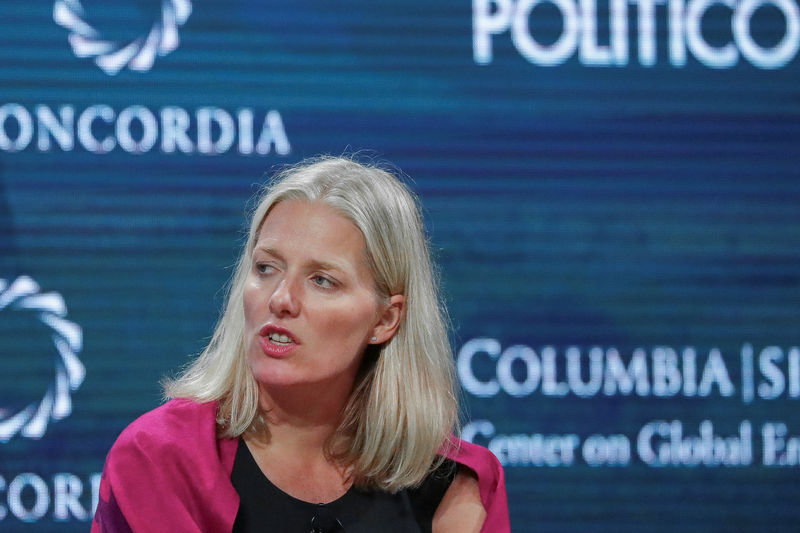By Nina Chestney
KATOWICE, Poland (Reuters) - Governments attending climate talks in Poland are working to ensure economies and jobs are preserved in the shift away from coal-fired power generation, Canada's environment minister said.
The debate about coal use has threatened to overshadow discussions on developing renewable and low-carbon energy at U.N. climate talks in Katowice, a city that lies in the heart of Poland's Silesia coal mining region.
Delegates from nations that rely heavily on coal power have called for a "just transition" from fossil fuels to ensure the shift to cleaner energy does not hurt jobs and economies.
"The issue of a 'just transition' - how you support jobs - is top of the minds of governments," Catherine McKenna, Canada's minister for environment and climate change, told Reuters.
"Coal, practically, isn't coming back but it is important we all look at opportunities and recognize we need to talk about workers and communities. That's a big issue here in Poland but it is also an issue in Germany," she said.
A U.N. report said in October that renewable energy would need to supply the bulk of world electricity by 2050 to keep global warming within a 1.5 degrees limit. Coal would have to fall to under 2 percent from almost 30 percent now.
Two weeks of talks in Poland among about 190 countries end this week.
Last year, Canada and Britain launched the Powering Past Coal Alliance, a coalition of 28 countries, as well as cities, provinces, states and businesses. It aims to encourage developed nations to phase out coal-fired power by 2030.
But several countries have been promoting fossil fuel use at talks in Poland, jarring with environmental campaigners and nations pushing for alternative power sources.
Polish President Andrzej Duda said last week that Poland's coal industry had a long future and vowed not to let anyone "murder coal mining". The country relies on coal for around 80 percent of its power and more than 82,000 mining jobs.
While calling for coal to be phased out, Canada has been criticized as one of the world's top oil and gas producers.
McKenna said Canada was addressing such concerns.
"We are in a transition and transitions are not going to happen from one day to the next. People are still driving cars and even in a 1.5C scenario we are still going to be using oil and gas but moving as quickly as we all can towards cleaner sources," she said.

She said Canada was investing in renewables and cited efforts in the Canadian province of Alberta, which relies heavily on oil and gas but has introduced a carbon tax and aims to impose a limit on emissions from oil sands.